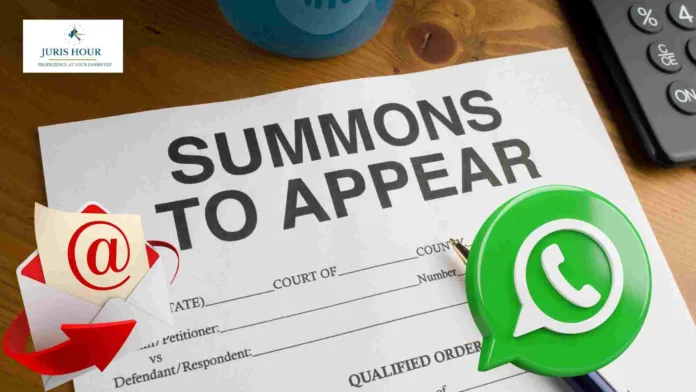In a major step towards digitizing judicial processes, the Delhi Government has officially notified the Delhi BNSS (Service of Summons and Warrants) Rules, 2025, allowing courts to deliver summons and warrants electronically through platforms like WhatsApp and email.
The notification, issued by the Home Department and approved earlier by Lieutenant Governor V.K. Saxena, is aimed at ensuring quicker and more efficient communication of court notices. According to senior officials, this move will not only save significant time but also reduce the burden of clerical work on the police, enabling them to focus more on core policing and investigations.
Under the new rules, summons issued by courts will now be generated digitally and bear the judge’s electronic signature and seal. Once created, these documents will be sent to the concerned individual electronically by the police. If electronic delivery is unsuccessful, or if contact details are unavailable, the court may still order traditional physical delivery.
The rules also introduce strong safeguards for privacy, particularly in sensitive cases. Victims’ personal details—such as email addresses and phone numbers—will remain protected in cases involving women, minors, and offences under the POCSO Act.
As part of the implementation framework, all police stations will be required to establish dedicated electronic summons delivery centres. These centres will handle the digital transmission, acknowledgement, and record-keeping of electronic summons and warrants. Police will maintain updated records of individuals to be served, either electronically or physically, and these details will be verified, uploaded into the Crime and Criminal Tracking Network System (CCTNS), and shared with jurisdictional courts on a monthly basis.
Officials believe this shift to digital service will streamline the judicial process, enhance accountability, and bring greater transparency to the system.
Read More: Writ Petitions Filed Beyond GST Appeal Limitation Period: Allahabad High Court Refuses to Entertain

